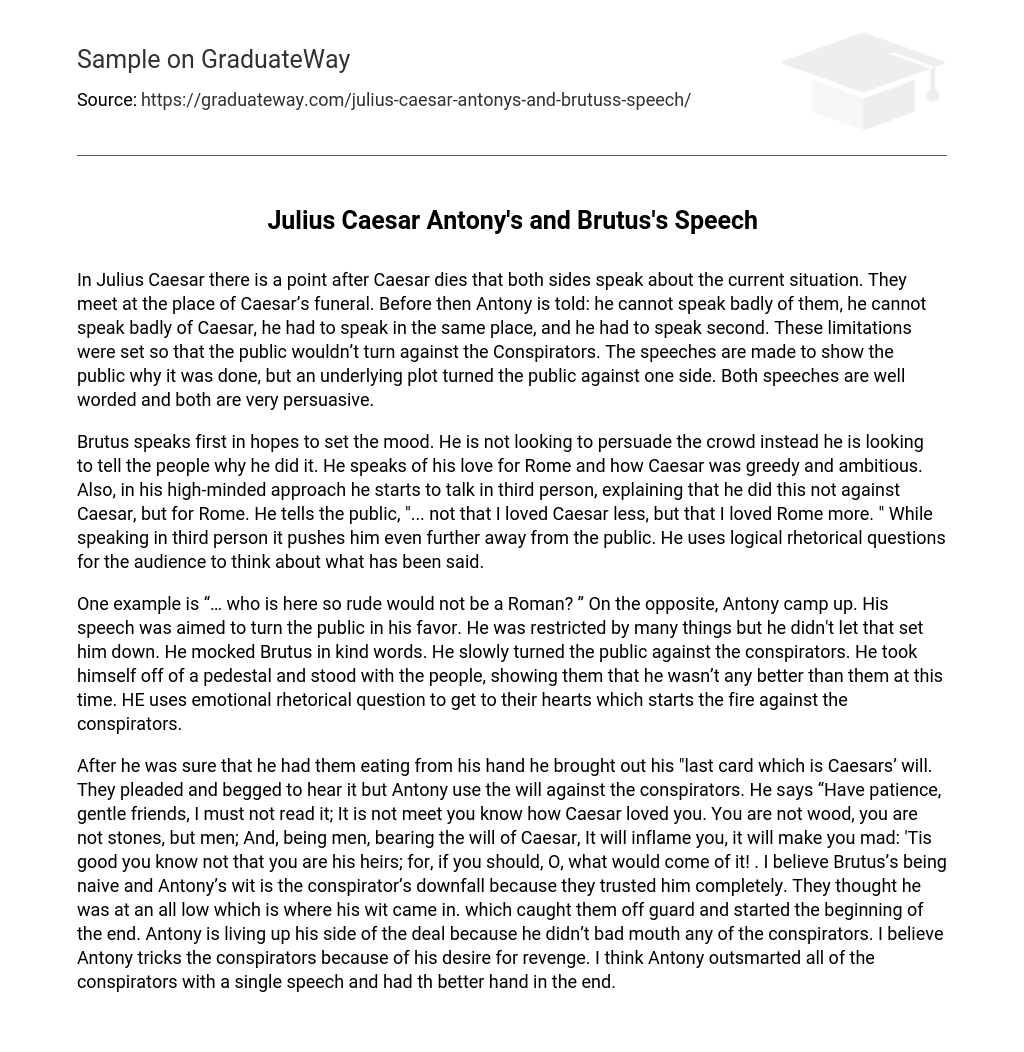In the play “Julius Caesar,” there is a moment after Caesar’s death where both sides discuss the current situation. They gather at the location of Caesar’s funeral. Prior to this, Antony is instructed that he cannot speak ill of the conspirators, cannot speak ill of Caesar, must speak at the same location, and must speak second. These restrictions aim to prevent the public from turning against the conspirators. The speeches are given to justify their actions to the public, but an underlying scheme turns the crowd against one side. Both speeches are eloquent and highly convincing.
Brutus assumes the role of the initial speaker with the intention of establishing the atmosphere. Instead of aiming to convince the crowd, he aims to elucidate the motives behind his actions. He expresses his adoration for Rome and describes Caesar as a covetous and ambitious figure. Furthermore, adopting a lofty approach, he begins to refer to himself in the third person and clarifies that he acted not against Caesar, but in favor of Rome. He addresses the public by stating, “… not that I loved Caesar less, but that I loved Rome more.” By speaking in the third person, he further distances himself from the audience. He employs logical rhetorical questions to prompt contemplation regarding the points made thus far.
One example is “… who is here so rude would not be a Roman?” On the other hand, Antony rose to the challenge. His speech focused on swaying the public in his favor. Despite facing limitations, he refused to be discouraged. He cleverly ridiculed Brutus using gentle language. Gradually, he convinced the public to turn against the conspirators. By humbling himself and standing with the people, he demonstrated that he was no superior to them at that moment. He employed emotional rhetorical questions to touch their hearts, igniting their anger towards the conspirators.
Once Antony had gained their trust, he revealed Caesar’s will as his “last card”. The conspirators pleaded to hear it, but Antony used the will against them. He explained that he could not read it, as it would reveal how much Caesar loved them and potentially enrage them. By withholding this information, Antony manipulated the conspirators into underestimating him. This proved to be their downfall. Antony fulfilled his part of the agreement by refraining from speaking ill of the conspirators. I believe his desire for revenge drove him to deceive them. With a single speech, Antony outsmarted all of the conspirators and ultimately emerged victorious.





